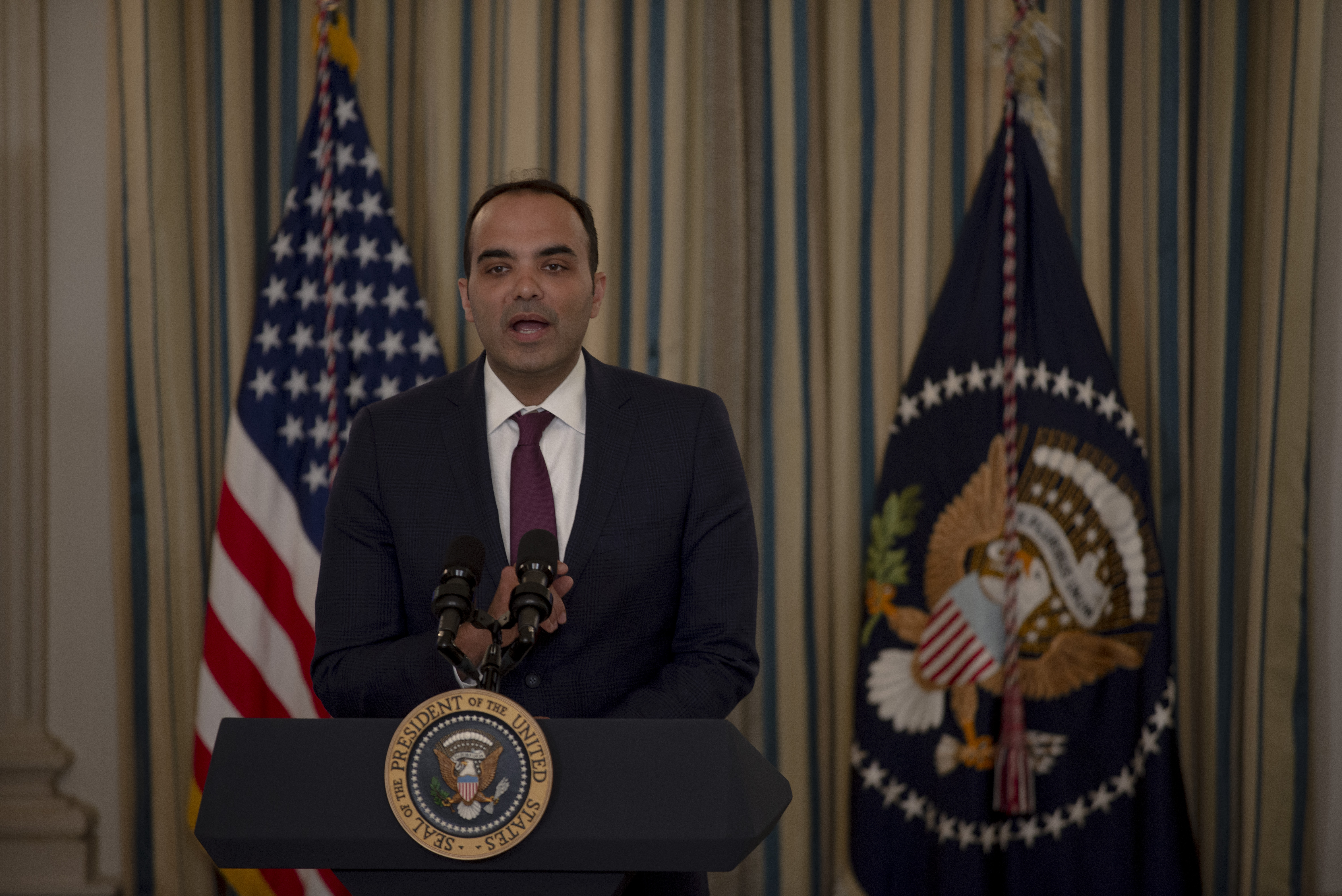Federal judge halts new US rules limiting credit card late fees

Rohit Chopra, director of the Consumer Financial Protection Bureau, at a meeting at the White House on March 5. (Gabriella Demczuk for the Washington Post)
A federal judge on Friday temporarily blocked the U.S. government from trying to limit credit card late fees, siding with banks and other business lobbyists that had challenged the policy as unconstitutional.
The cap on penalties was set to take effect next week, but the new ruling from U.S. District Judge Mark T. Pittman, nominated by President Donald Trump in 2019, would block swift financial relief for millions of Americans who have fallen behind on their bills.
Under the contested policy, the Consumer Financial Protection Bureau (CFPB) sought to restrict most penalties for late or missed credit card payments to $8 per month, unless banks could point to data showing that they needed to charge more to make up for their financial losses.
The regulations aimed to close a loophole in federal law that had allowed some companies to charge an average of $32 a month in late fees, enriching an industry that reaped $14 billion in such payments in 2022, according to the CFPB’s estimates.
“The American people are tired of being played for suckers,” President Biden said in March, heralding the plan as part of his larger campaign against “junk fees.”
But major banks and credit card companies sharply opposed any limits on what they could charge late borrowers. After an unsuccessful, year-long lobbying campaign to deter the CFPB, the U.S. Chamber of Commerce joined bank lobbyists and other groups in suing the government this spring, stressing that fees are essential for “deterring late payments.”
On Friday, Pittman granted those lobbying groups’ requests, temporarily halting the policy before it could take effect on May 14. The decision in the Northern District of Texas marked a major early win for Bank of America, Capital One, Citibank and JPMorgan Chase, whose executives serve on the boards of directors for the organizations that sued the government, including the American Bankers Association and the Consumer Bankers Association.
“This ruling is a major win for responsible consumers who pay their credit card bills on time and businesses that want to provide affordable credit,” Maria Monaghan, who serves as counsel for the U.S. Chamber’s Litigation Center, said in a statement. “The CFPB’s attempted micromanagement would have raised costs for most credit card users and made it harder for businesses to meet consumers’ needs. The U.S. Chamber will continue to hold the CFPB accountable in court.”
But the CFPB stressed that the true costs of the court’s decision will fall on millions of cash-strapped Americans, many of whom will see no change to their credit card bills. Sam Gilford, a spokesman for the agency, estimated that cardholders would “shoulder $800 million in late fees for every month” that the government’s rules are delayed, all while the delay “pads the profit margins of the largest credit card issuers.”
The temporary injunction buys more time for the two sides to argue over the merits of the rules. But the case is already mired in controversy: Democratic lawmakers have expressed alarm about some of the circuit court judges’ stock holdings, for example, while the judicial system has warred with itself over which court should have heard the arguments in the first place.
The decision comes as the future of the CFPB remains unsettled, hinging on a pivotal Supreme Court case challenging the agency’s funding that is expected to be decided in the coming weeks.
Write a letter to the editor, share a story tip or update, or report an error.



